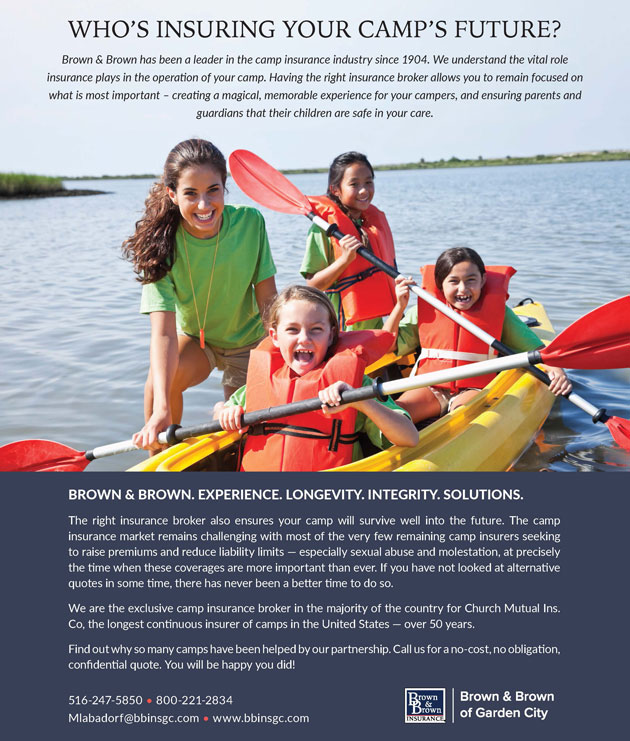As the pandemic approaches the start of its third year and we adapt our programs and our lives to mitigate the impact of COVID-19 variants and subvariants, demand for day and overnight camp experiences is soaring. I am deeply impressed by the tremendous work camp professionals are investing to strengthen capacity, manage costs, hire staff, and operate their programs safely at greater scale to meet the public’s need.
In December, the US Surgeon General reminded the nation of the mental health crisis that our children and youth were facing before COVID-19. Pre-pandemic, 1 in 5 children aged 3–17 had been diagnosed with a mental, emotional, developmental, or behavioral disorder. In the decade preceding the pandemic, the number of youths who reported persistent feelings of sadness or hopelessness jumped by 40 percent to more than 1 in 3, and suicidal rates among youth 10–24 increased by 57 percent (Department of Health and Human Services, 2021). The pandemic has terribly isolated young people and widely exacerbated these conditions. A meta-analysis of 29 studies, including 80,879 youth globally over the first year of the pandemic, found that depression and anxiety had doubled, intensifying in older adolescents and in girls as the pandemic continued (Racine et al., 2021).
Now more than ever parents are eager to understand the strategies camps employ to help improve camper and staff well-being while at camp despite COVID. Camp professionals create intentional communities that emphasize caring relationships, high expectations, meaningful participation, some autonomy, and a sense of purpose, where safety, belonging, and respect are foundational. At camp we encourage campers and staff to feel empowered to take positive risks — challenging themselves, building confidence, and working to master skills and competencies. In this child-centered universe, camp offers campers and staff countless ways to improve their well-being.
Undistracted by personal technology, young people can focus on developing empathetic relationships. Campers are able to slow down to really connect and practice in-person communication skills with their peers and near-peer counselors. Together they create an emotionally and physically safe support network for each other, which helps combat the loneliness and negative self-talk that have been so pervasive during the pandemic.
With trust and time, young people feel supported when they make a mistake or get frustrated. They learn to express themselves when they feel they really belong and contribute to the success of the group. Camp affords young people the opportunity to be more mindful in how they interact with others. They can breathe, relax, get in touch with their feelings, and practice emotional regulation.
Camp gives young people a measure of independence from their parents and lets them pursue skills and enriching activities that interest them — also enabling them to feel purposeful, happy, and healthy. Camp is entirely human powered, centered around regular physical activity that improves a young person’s brain health, and in turn their mood, and reduces stress and depression. At camp, youth have an opportunity to practice being people, living intentionally in a flourishing, inspirational, and aspirational community where they learn they can lead, be creative, and make a difference in society. Whether in a pandemic or not, camp helps young people thrive.
References
- Department of Health and Human Services. (2021, December 7). US Surgeon General issues advisory on youth mental health crisis further exposed by COVID-19 pandemic. hhs.gov/about/news/2021/12/07/us-surgeon-general-issues-advisory-on-youth-mental-health-crisis-further-exposed-by-covid-19-pandemic.html
- Racine, R., McArthur, B. A., & Cooke, J. E., Eirich, R., Zhu, J., & Madigan, S. (2021, August 9). Global prevalence of depressive and anxiety symptoms in children and adolescents during COVID-19: A meta-analysis. JAMA Pediatrics. jamanetwork.com/journals/jamapediatrics/fullarticle/2782796



